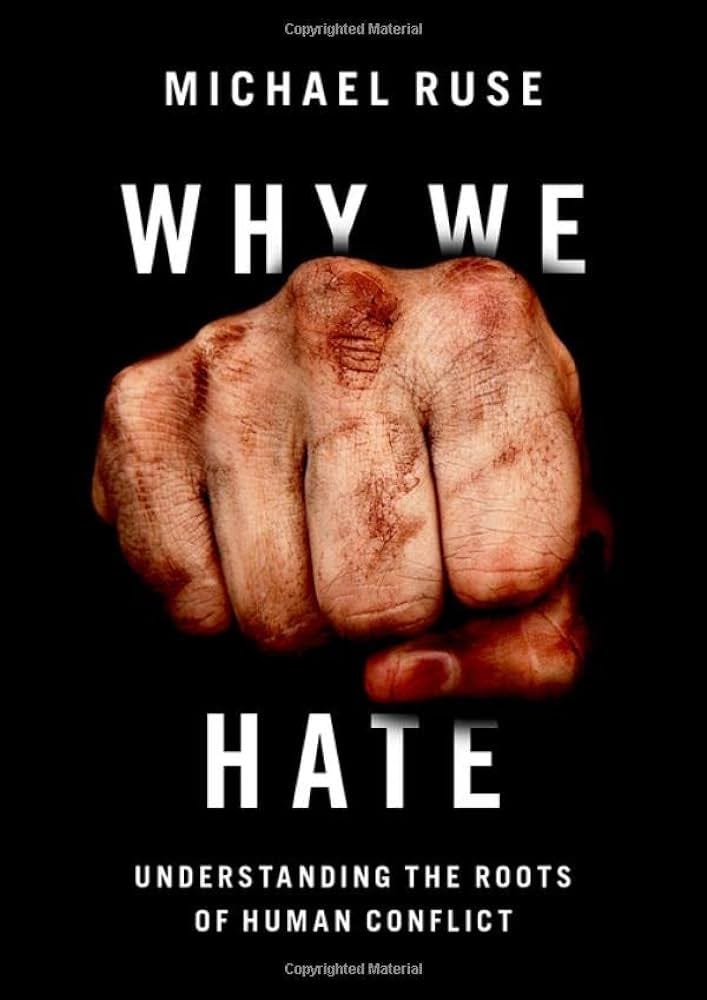We live in a rather tumultuous time. Bigotry, hatred, conflict, and division surround us everywhere we go. From driving to the store to and being surrounded by needlessly aggressive drivers to the way the person in front of us in line at Starbucks is treating the barista because their drink is taking too long, it seems like aggression and anger are everywhere. It is almost as if we have forgotten how to treat each other or act towards each other.
Or maybe we never really have known.
The premise of Michael Ruse’s book Why We Hate is that bigotry and conflict are evolutionarily built into us. At one time, when humankind were hunter/gatherers, they served a genuine purpose in protecting our group from others who might be aiming to do us harm or take from us what we had spent our time and energy collecting. Or we saw the other groups as helpful and we would aim to work together to advance and survive as a species. Then we figured out farming and established boundary lines and territories that no longer crossed each other. We built walls and the “other” began to be viewed more as a threat than a potential ally.
As time has progressed, this hatred has become more specific and we have evolved to hate all of those who are different from our little group or tribe.
Religion.
Gender.
Race.
They are all reasons for us to shun and hate the other. This has led, in part, to the constant global conflict that has plagued humanity for generations.
As a former Quaker, Ruse is steeped in a religious tradition that is pacifist and against conflict. They seek peace as a core tenant and moral value, explicitly derived from the teachings of Jesus. Even looking at hate and bigotry from a purely anthropological standpoint, as he tries to do throughout the work, the reader can pick up on the influence of this belief. He does not want to see this conflict continue into perpetuity. He holds out the hope that we can overcome it. So, in the end, he offers some solutions which, for me, seemed to boil down to opening ourselves to interacting with people who are different from us and giving a genuine ear to their stories and experiences.
As he was writing the book, he was looking to the conflict between Russia and Ukraine and held out hope that it would be just a “blip on the radar”, signaling the end of that kind of conflict as a way to resolve differences. So it was interesting to read in light of the recent conflict between Israel and Hamas. I would like to see his commentary on that new fight in the context of his work here.
Overall, I found this book informative and thought-provoking. And I think it is an extremely important book, especially for those who desire to understand and overcome the hate they may be harboring in their own hearts.
*******
Disclosure of Material Connection: I received this book free from the author and/or publisher through the Speakeasy blogging book review network. I was not required to write a positive review. The opinions I have expressed are my own. I am disclosing this in accordance with the Federal Trade Commission’s 16 CFR,Part 255.




